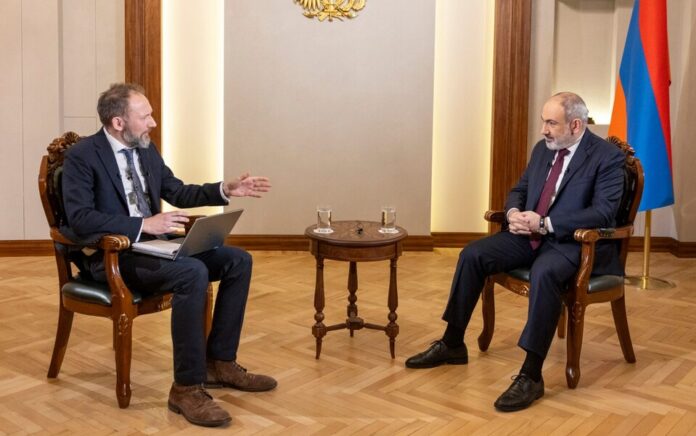By Roland Oliphant
YEREVAN (The Telegraph) — He is in the middle of delicate peace talks, trying to please Russia and the West, and sits on a geopolitical fault line where wars in Ukraine and the Middle East overlap.
So it is no surprise that Nikol Pashinyan chooses his words with the care of a man handling a box of matches in a petrol station.
“Fear is not the right word,” the Armenian prime minister says when asked about mounting concerns of a new war in the South Caucasus.
“The Republic of Armenia is a democratic and developing country,” he told The Telegraph in an interview in his Yerevan office. (The interview ran on February 11.)
“And the Republic of Armenia is implementing wide-scale reforms for improving our country’s resilience. By the way, in recent years, I think that the international community and our society have seen that our country’s resilience has improved significantly.”








